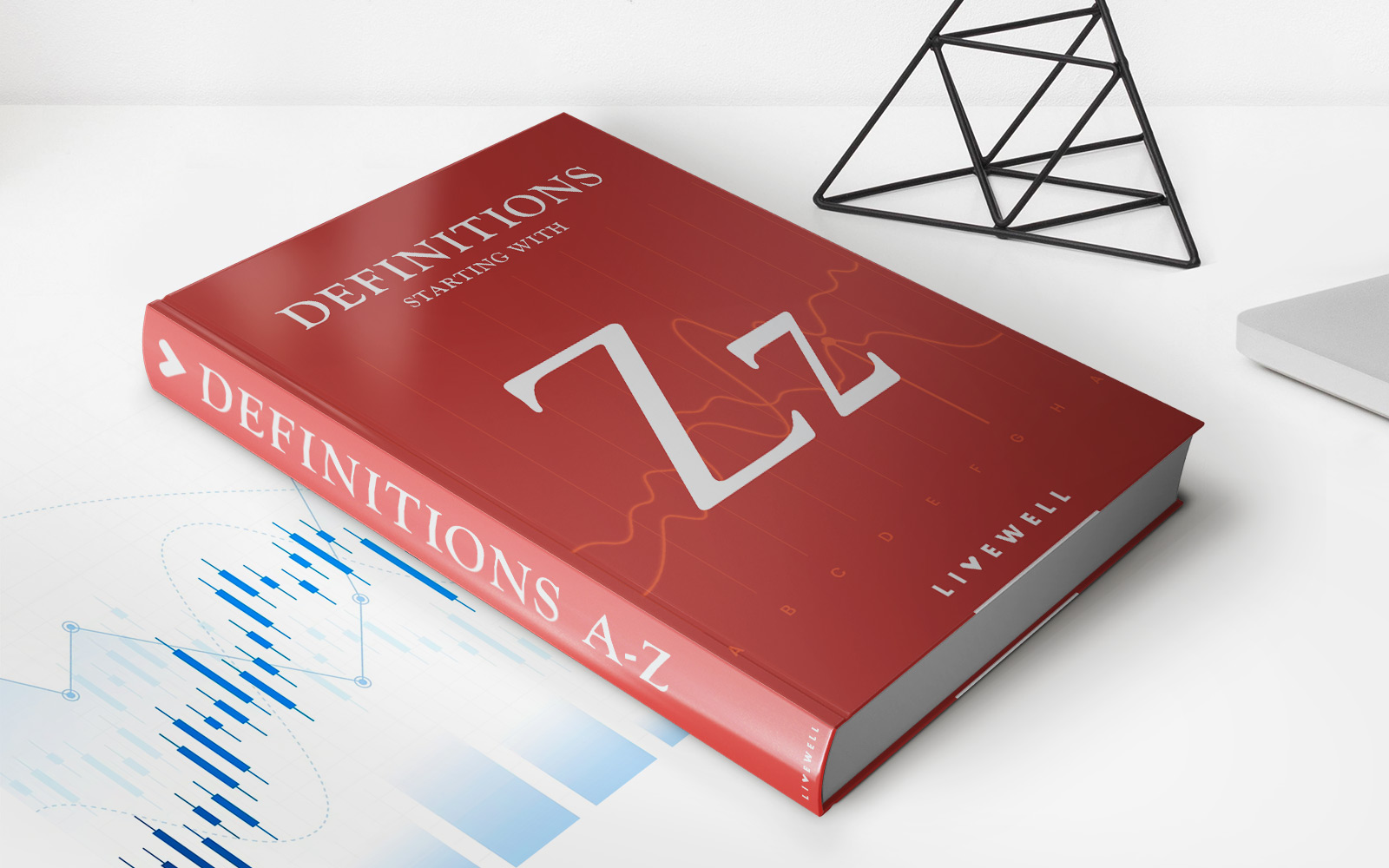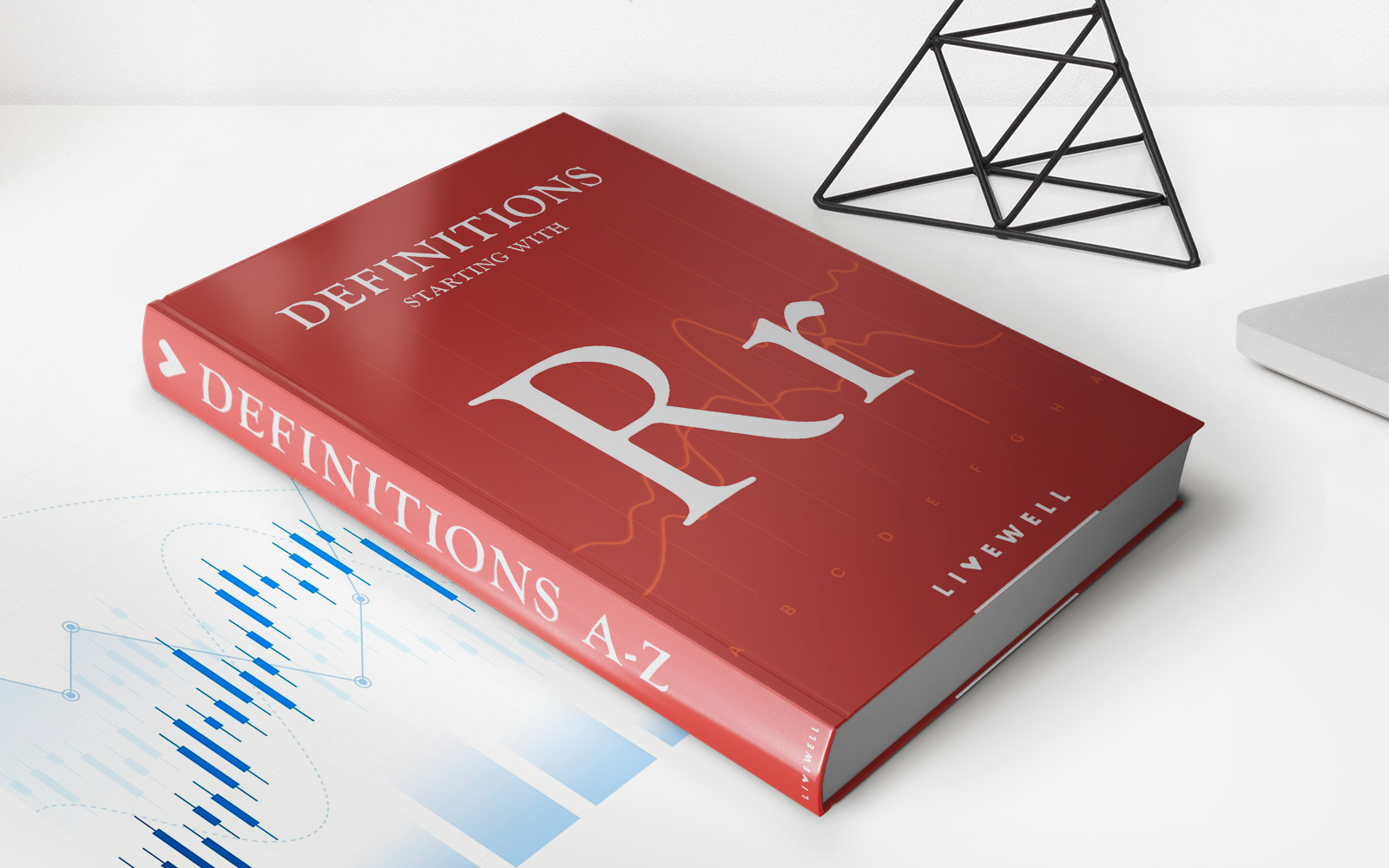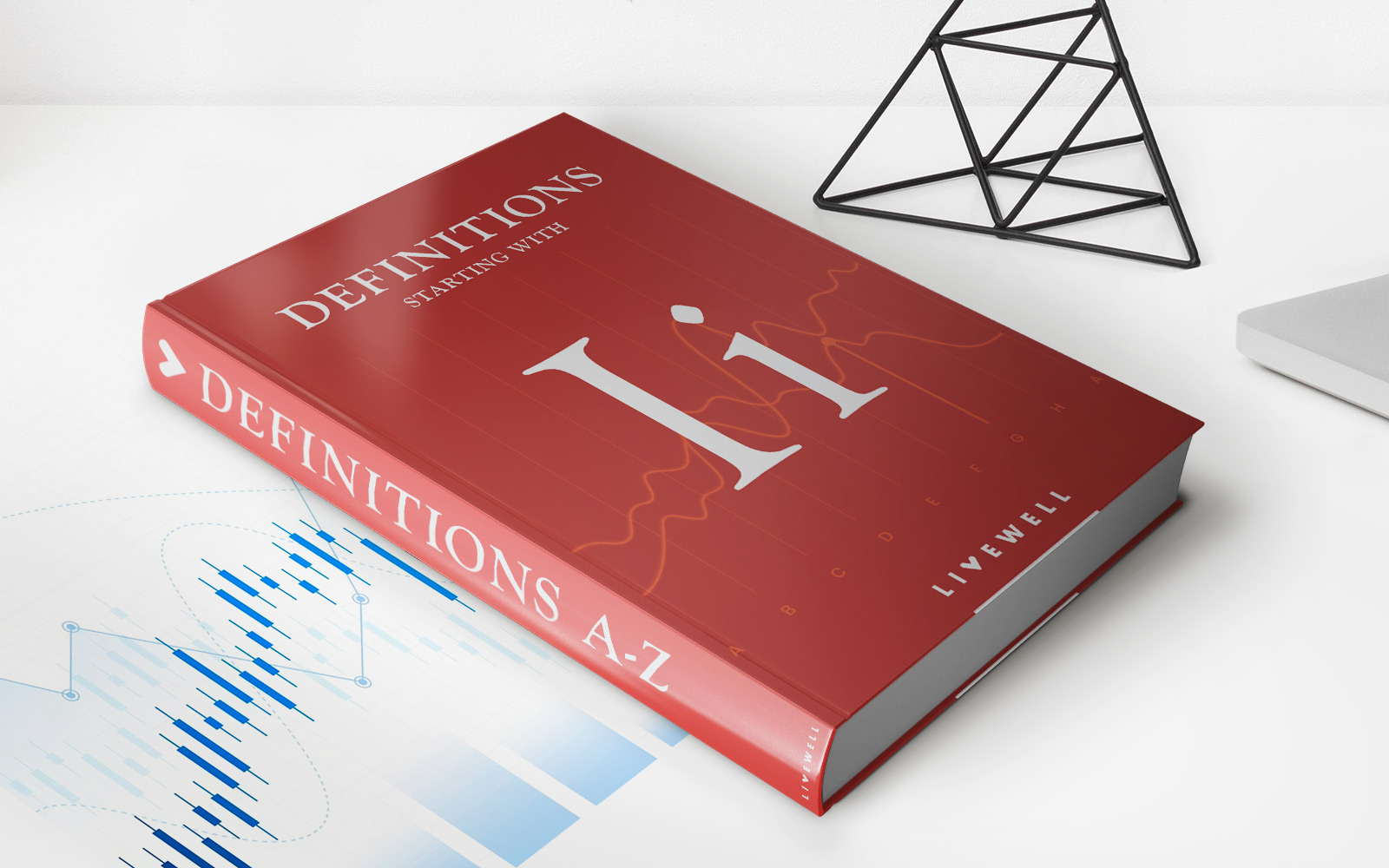

Finance
What Is A Credit Tradeline
Modified: February 21, 2024
Learn what a credit tradeline is and how it can impact your finance. Enhance your credit history and improve your financial position with this powerful tool.
(Many of the links in this article redirect to a specific reviewed product. Your purchase of these products through affiliate links helps to generate commission for LiveWell, at no extra cost. Learn more)
Table of Contents
Introduction
When it comes to personal finance, one crucial aspect that affects an individual’s financial well-being is their credit score. A credit score is a numerical representation of a person’s creditworthiness and is used by lenders to determine whether to approve credit applications or offer favorable loan terms. But have you ever wondered how credit bureaus calculate credit scores?
One essential factor that plays a significant role in determining a credit score is a credit tradeline. A credit tradeline is an account on a person’s credit report that tracks their credit activity with a particular creditor. It includes details such as the type of account, credit limit, balance, payment history, and status of the account. Essentially, a credit tradeline is a summary of a person’s credit history with a specific lender.
Credit tradelines are vital because they provide a comprehensive overview of an individual’s borrowing and repayment behavior. Lenders use this information to assess an individual’s creditworthiness and make informed decisions on granting credit. A robust credit history, with positive tradelines, can improve an individual’s chances of getting approved for loans, credit cards, mortgages, and favorable interest rates.
In this article, we will delve deeper into credit tradelines, their importance, types, and how they impact credit scores. We will also discuss the best practices for adding and managing credit tradelines to maximize their positive effect on credit scores. Furthermore, we will highlight common mistakes to avoid when dealing with credit tradelines.`
Definition of a Credit Tradeline
A credit tradeline refers to any line of credit or account that you have with a lender, such as a credit card, mortgage, auto loan, or personal loan. It is essentially a record of your borrowing and repayment history with that specific creditor. Each tradeline includes crucial information such as the account type, the credit limit or loan amount, the outstanding balance, your payment history, and the account status (whether it is open, closed, or in default).
Tradelines are reported to credit bureaus by lenders, who provide regular updates on your account activity. This information is then used to calculate your credit score. Positive tradelines, with a history of on-time payments and responsible credit usage, can have a positive impact on your credit score, while negative tradelines, such as missed payments or defaults, can lower your score.
Credit tradelines play a significant role in determining your creditworthiness and financial reputation. Lenders and creditors rely on this information to assess your creditworthiness and make lending decisions. A strong credit history with a variety of positive tradelines demonstrates your ability to manage credit responsibly, increasing your chances of getting approved for future loans and credit cards at favorable interest rates.
It’s important to note that not all loans or accounts will be reported as tradelines. For example, some small personal loans or rent payments may not be reported to credit bureaus, so they won’t contribute to your credit history or impact your credit score.
Understanding the concept of credit tradelines is crucial as it allows you to monitor and manage your credit effectively. By keeping track of your tradelines and ensuring they reflect accurate information, you can maintain a healthy credit score and open doors to better borrowing opportunities in the future.
Importance of Credit Tradelines
Credit tradelines are an essential component of your credit history, and their significance cannot be overstated. They provide a comprehensive snapshot of your credit behavior and financial responsibility to lenders and creditors. Here are some key reasons why credit tradelines are important:
- Creditworthiness Assessment: Creditors and lenders use credit tradelines to assess your creditworthiness. By reviewing your credit tradelines, they can evaluate your borrowing and repayment history. A positive credit history, with a history of timely payments and responsible credit use, demonstrates to lenders that you are a reliable borrower who is likely to repay debts on time. This can increase your chances of getting approved for loans and credit cards with favorable terms and interest rates.
- Credit Score Calculation: Credit tradelines play a crucial role in calculating your credit score. The information reported in your tradelines, such as your payment history, credit utilization ratio, and the length of credit history, contribute to the calculation of your credit score. A higher credit score indicates a lower credit risk, making you more attractive to lenders and improving your ability to access credit at lower interest rates.
- Building Credit History: Credit tradelines help you establish and build your credit history. If you are new to credit or have a limited credit history, having tradelines with positive payment histories can be instrumental in building a strong credit profile. By responsibly managing your tradelines and making on-time payments, you can establish a solid credit foundation, which will open doors to better credit opportunities in the future.
- Diversification of Credit: Having a diverse range of credit tradelines can contribute positively to your credit profile. Lenders prefer to see a mix of credit types, such as credit cards, installment loans, and mortgages, as it demonstrates your ability to handle different types of credit obligations. A diverse credit profile showcases your financial maturity and responsible credit management and can improve your creditworthiness.
- Improvement of Credit Score: By adding positive tradelines and managing them effectively, you can improve your credit score over time. Regularly making on-time payments, keeping credit utilization low, and maintaining a mix of tradelines with good payment histories can have a positive impact on your credit score. This, in turn, can lead to better borrowing opportunities and lower interest rates in the future.
Overall, credit tradelines play a vital role in shaping your creditworthiness and financial future. By maintaining a positive credit history and managing your tradelines responsibly, you can establish a solid foundation for financial success and access better credit opportunities.
Types of Credit Tradelines
Credit tradelines come in various forms, each representing a specific type of credit account. Understanding the different types of tradelines can help you diversify your credit profile and build a strong credit history. Here are common types of credit tradelines:
- Credit Cards: Credit cards are one of the most common types of tradelines. They allow you to borrow money up to a certain credit limit and require you to make minimum monthly payments. Credit card tradelines include details such as the credit limit, outstanding balance, payment history, and the account status.
- Installment Loans: Installment loans are another type of tradeline where you borrow a fixed amount of money and repay it in regular installments over a specified period. Examples include auto loans, mortgages, personal loans, and student loans. Installment loan tradelines show the loan amount, remaining balance, payment history, and the account status.
- Revolving Lines of Credit: Revolving lines of credit, such as home equity lines of credit (HELOCs) or personal lines of credit, allow you to borrow money up to a certain limit and repay it with flexible terms. These tradelines show the credit limit, outstanding balance, payment history, and the account status.
- Retail Store Cards: Retail store cards are credit cards issued by specific retailers that can only be used at their stores. These tradelines typically offer special discounts and rewards for purchases made at the retailer. Similar to credit cards, retail store card tradelines show the credit limit, outstanding balance, payment history, and the account status.
- Secured Credit Cards: Secured credit cards are a specific type of credit card that requires a security deposit as collateral. The credit limit is typically equal to the amount of the security deposit. These tradelines help individuals with poor or limited credit history to build or rebuild their credit by making timely payments.
- Joint Accounts: Joint accounts are tradelines that involve two or more individuals who are equally responsible for repaying the debt. These accounts can be joint credit cards or joint loans, and they appear on the credit reports of all account holders.
It’s important to note that the type and mix of tradelines in your credit profile can impact your creditworthiness. Having a diverse range of tradelines, such as a mix of credit cards, installment loans, and revolving lines of credit, can demonstrate your ability to manage different types of credit obligations and positively impact your credit score.
Remember, it’s crucial to use credit responsibly and make timely payments on all your tradelines to maintain a positive credit history and optimize your credit score.
Adding and Managing Credit Tradelines
Adding and managing credit tradelines effectively is essential for maintaining a healthy credit profile and maximizing your credit score. Here are some key considerations for adding and managing credit tradelines:
- Apply for Credit Responsibly: When adding new tradelines, it’s important to apply for credit responsibly. Avoid applying for multiple credit accounts within a short period as it can raise concerns about your creditworthiness. Instead, research and choose credit options that align with your financial needs and qualifications.
- Make Timely Payments: Timely payments are crucial for maintaining positive tradelines. Pay all your credit obligations, including credit cards, loans, and other accounts, on time. Late payments can have a detrimental impact on your credit score and may result in negative tradelines.
- Monitor Your Credit Report: Regularly monitor your credit report to ensure that your tradelines are accurately reported. Check for any errors, such as incorrect balances or missed payments, and report them to the credit bureaus for correction. Monitoring your credit report can help you identify and address any potential issues promptly.
- Manage Credit Utilization: Credit utilization refers to the percentage of your available credit that you are using. It’s generally recommended to keep your credit utilization below 30% to maintain a positive impact on your credit score. Monitor your credit card balances and strive to pay them off in full each month to keep your credit utilization low.
- Avoid Closing Old Accounts: Closing old accounts can potentially harm your credit score, especially if they have positive payment histories. Instead, consider keeping them open to demonstrate a longer credit history, which can positively impact your creditworthiness.
- Consider Authorized User Accounts: If you have limited or no credit history, becoming an authorized user on someone else’s credit card can help you establish a credit tradeline. However, it’s essential to choose a responsible primary account holder who maintains a positive payment history.
- Seek Professional Advice if Needed: If you need guidance on managing your credit tradelines or improving your credit score, consider seeking advice from a reputable credit counseling agency or a financial professional. They can provide personalized recommendations based on your specific financial situation.
By adding and managing your credit tradelines responsibly, you can build a strong credit history, improve your credit score, and increase your chances of accessing better credit opportunities in the future.
Impact of Credit Tradelines on Credit Scores
Credit tradelines have a significant impact on your credit scores, as they provide lenders and credit bureaus with valuable information about your credit history. Here are some key ways in which credit tradelines can influence your credit scores:
- Payment History: Your payment history is one of the most crucial factors in determining your credit scores. Positive payment histories, where you consistently make on-time payments on your tradelines, can have a positive impact on your credit scores. Conversely, late payments, defaults, or collections can negatively impact your scores.
- Credit Utilization: Credit utilization refers to the amount of your available credit that you are currently using. It is calculated by dividing your total credit card balances by your total credit limits. Keeping your credit utilization ratio low, ideally below 30%, can positively impact your credit scores. Utilizing a high percentage of your available credit can suggest credit risk and lower your scores.
- Length of Credit History: The length of your credit history, including the age of your tradelines, also plays a role in determining your credit scores. Tradelines with a longer history can have a positive impact on your scores, as they demonstrate your ability to manage credit responsibly over an extended period.
- Credit Mix: Having a diverse mix of credit tradelines can positively impact your credit scores. Lenders like to see a variety of credit types, such as credit cards, installment loans, and mortgages, as it demonstrates your ability to manage different types of credit. However, this factor has a relatively smaller impact on your scores compared to payment history and credit utilization.
- New Credit Inquiries: When you apply for new credit, such as a loan or credit card, a hard inquiry is placed on your credit report. Multiple inquiries within a short period can have a negative impact on your credit scores, as it may suggest a higher risk of borrowing. It’s important to limit the number of credit inquiries you make and space them out over time.
It’s important to note that the impact of credit tradelines may vary from person to person, as credit scoring models take into account multiple factors in addition to tradelines. Furthermore, the weight given to each factor may vary depending on individual circumstances and the specific credit scoring model being used.
Understanding how different aspects of credit tradelines influence your credit scores can help you make informed decisions about managing your credit responsibly. By maintaining a history of on-time payments, keeping credit utilization low, and diversifying your credit mix, you can positively impact your credit scores and improve your overall creditworthiness.
Common Mistakes to Avoid with Credit Tradelines
When it comes to managing credit tradelines, it’s crucial to avoid common mistakes that can have a negative impact on your credit scores and financial well-being. Here are some common mistakes to avoid:
- Missing Payments: One of the most significant mistakes you can make is missing payments on your credit tradelines. Late payments can lower your credit scores and remain on your credit report for up to seven years. Make sure to set up reminders or automatic payments to ensure you never miss a due date.
- Maxing Out Credit Cards: Utilizing a large portion of your available credit can negatively impact your credit scores. Maxing out your credit cards or carrying high balances can suggest a higher reliance on credit and increase your credit utilization ratio. Strive to keep your credit card balances below 30% of your credit limit.
- Closing Old Accounts: Closing old credit card accounts, especially those with positive payment histories, can reduce the average age of your credit history and shorten the length of your credit tradelines. This can have a negative impact on your credit scores. Instead of closing old accounts, consider keeping them open to maintain a longer credit history.
- Opening Too Many New Accounts: Rapidly opening multiple new credit accounts within a short period can raise red flags for lenders and negatively impact your credit scores. Each new account results in a hard inquiry on your credit report and affects the average age of your credit history. Be cautious and thoughtful when applying for new credit.
- Inaccurate or Unreported Information: It’s essential to regularly review your credit report to ensure that all information, such as balances, payments, and account statuses, is accurate and up to date. Incorrect or unreported information can significantly impact your credit scores. If you find any errors, dispute them with the credit bureaus to have them corrected.
- Being Unaware of Authorized User Status: While becoming an authorized user on someone else’s credit card can be a helpful strategy to build credit, it’s crucial to understand the implications. If the primary cardholder makes late payments or carries high balances, it can negatively impact your credit scores. Always make sure to choose a responsible primary account holder.
- Not Monitoring Your Credit: Failing to regularly monitor your credit reports can leave you unaware of any potential issues or inaccuracies. Stay proactive and review your credit reports from all three major credit bureaus on a regular basis. This allows you to address any concerns promptly and maintain an accurate and positive credit history.
Avoiding these common mistakes can help you maintain a healthy credit profile, protect your credit scores, and increase your financial stability. By being mindful of your credit tradelines and managing them responsibly, you can pave the way for better credit opportunities and financial success in the future.
Conclusion
Credit tradelines play a vital role in shaping your creditworthiness and financial future. Understanding the definition and importance of credit tradelines allows you to make informed decisions when it comes to managing your credit. By strategically adding and managing credit tradelines, you can establish a strong credit history, improve your credit score, and gain access to better borrowing opportunities.
Remember, credit tradelines provide lenders and creditors with valuable information about your borrowing and repayment behavior. Positive tradelines, with a history of on-time payments and responsible credit utilization, can have a positive impact on your credit score, while negative tradelines can lower your score and make it more challenging to access credit at favorable terms.
It’s important to avoid common mistakes with credit tradelines, such as missing payments, maxing out credit cards, closing old accounts, and opening too many new accounts. By taking proactive steps to manage your credit, such as making timely payments, keeping credit utilization low, and monitoring your credit report for accuracy, you can maintain a healthy credit profile and enhance your financial well-being.
By understanding the impact of credit tradelines on credit scores, you can take the necessary actions to improve your creditworthiness. Remember that credit scores are dynamic and can change over time, so it’s crucial to remain diligent and responsible in managing your credit tradelines.
In conclusion, credit tradelines are a fundamental component of your credit history. By utilizing them wisely, you can build a strong credit foundation, gain access to better borrowing opportunities, and achieve financial success.














